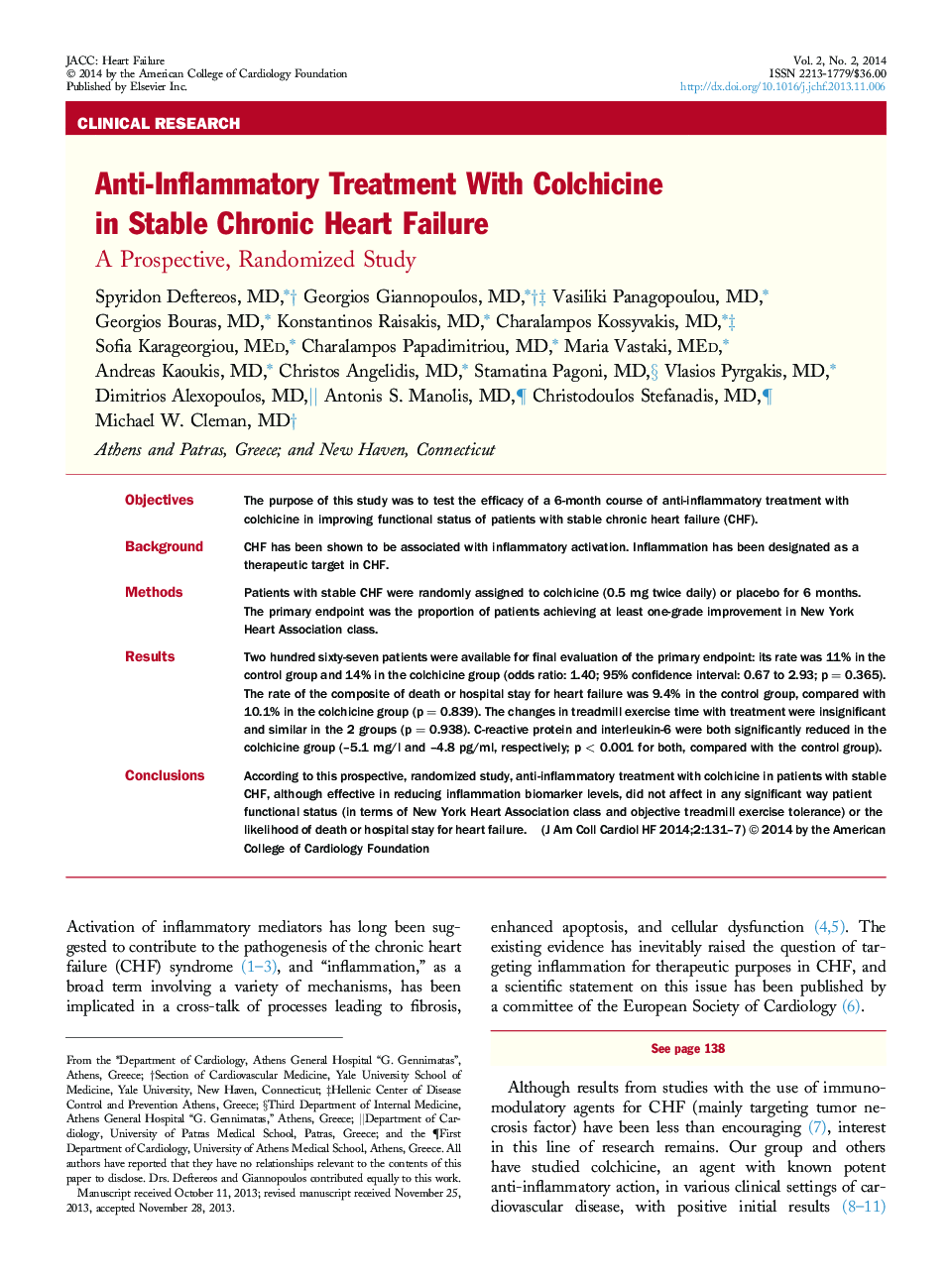| Article ID | Journal | Published Year | Pages | File Type |
|---|---|---|---|---|
| 2942594 | JACC: Heart Failure | 2014 | 7 Pages |
ObjectivesThe purpose of this study was to test the efficacy of a 6-month course of anti-inflammatory treatment with colchicine in improving functional status of patients with stable chronic heart failure (CHF).BackgroundCHF has been shown to be associated with inflammatory activation. Inflammation has been designated as a therapeutic target in CHF.MethodsPatients with stable CHF were randomly assigned to colchicine (0.5 mg twice daily) or placebo for 6 months. The primary endpoint was the proportion of patients achieving at least one-grade improvement in New York Heart Association class.ResultsTwo hundred sixty-seven patients were available for final evaluation of the primary endpoint: its rate was 11% in the control group and 14% in the colchicine group (odds ratio: 1.40; 95% confidence interval: 0.67 to 2.93; p = 0.365). The rate of the composite of death or hospital stay for heart failure was 9.4% in the control group, compared with 10.1% in the colchicine group (p = 0.839). The changes in treadmill exercise time with treatment were insignificant and similar in the 2 groups (p = 0.938). C-reactive protein and interleukin-6 were both significantly reduced in the colchicine group (–5.1 mg/l and –4.8 pg/ml, respectively; p < 0.001 for both, compared with the control group).ConclusionsAccording to this prospective, randomized study, anti-inflammatory treatment with colchicine in patients with stable CHF, although effective in reducing inflammation biomarker levels, did not affect in any significant way patient functional status (in terms of New York Heart Association class and objective treadmill exercise tolerance) or the likelihood of death or hospital stay for heart failure.
